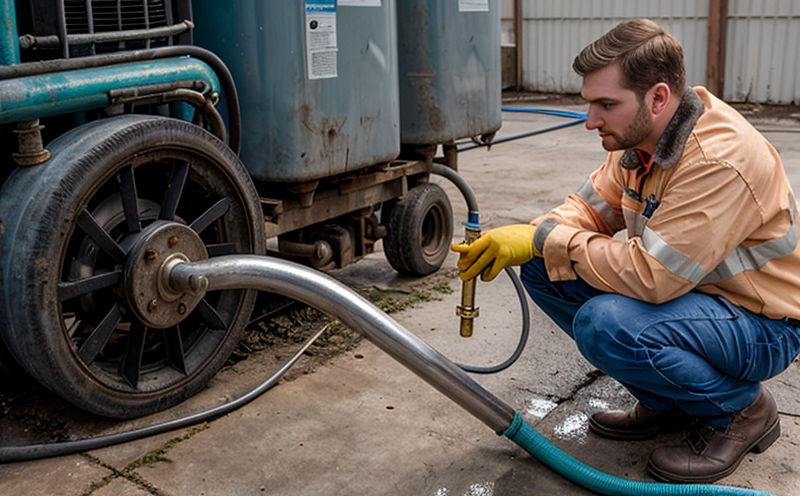Refrigerant piping inspection
In the realm of HVAC and ventilation systems, refrigerant piping plays a critical role in ensuring efficient operation and safety. Refrigerant, being the heart of these systems, must flow without leakage to prevent performance degradation and potential hazards. A comprehensive refrigerant piping inspection is essential for maintaining system integrity and compliance with regulatory standards.
The inspection process involves thorough examination of all components involved in the refrigeration cycle, including pipes, connections, valves, and other related hardware. This service ensures that any potential issues are identified early, preventing costly repairs or replacements later on. By leveraging advanced diagnostic tools such as ultrasonic testing (UT) and infrared thermography (IR), technicians can pinpoint even minute leaks or anomalies.
Regulatory compliance is paramount in HVAC operations due to the environmental impact of refrigerants like HFCs and HCFCs, which are potent greenhouse gases. Therefore, regular inspections not only maintain operational efficiency but also contribute to sustainability goals by minimizing emissions leakage into the atmosphere. This service aligns perfectly with global initiatives aimed at reducing the carbon footprint associated with industrial processes.
For quality managers and compliance officers seeking peace of mind regarding their facility's refrigeration systems, choosing this inspection ensures that every aspect is scrutinized against stringent international standards such as ISO 14001 for environmental management systems. R&D engineers benefit from having reliable data on system performance which can inform future design improvements or modifications.
Procurement teams will appreciate knowing they are dealing with suppliers who adhere to these high-quality benchmarks, thereby reducing risks associated with substandard equipment. The precision offered by this inspection enhances overall reliability and longevity of HVAC systems across various sectors including commercial buildings, industrial plants, data centers among others.
Scope and Methodology
| Aspect | Description |
|---|---|
| Inspection Methods | Ultrasonic Testing (UT), Infrared Thermography (IR), Visual Inspection, Pressure Testing. |
| Target Components | Pipes, Valves, Fittings, Connectors, Expansion Valves. |
| Regulatory Compliance | ISO 14001, ASHRAE Standard 15, OSHA 29 CFR Part 1910. |
Industry Applications
The application of refrigerant piping inspection is widespread across numerous industries where efficient and safe handling of refrigerants are crucial. Commercial buildings, including hotels, office complexes, retail spaces among others rely heavily on reliable HVAC systems to maintain comfortable indoor environments year-round.
Industrial plants also depend on robust refrigeration networks for maintaining optimal conditions during manufacturing processes which require precise temperature control. Data centers are particularly sensitive as any disruption could lead to significant downtime or data loss. Ensuring proper maintenance through regular inspections helps prevent such incidents while enhancing productivity and reducing operational costs.
In healthcare facilities, where precision in temperature regulation is vital for patient care, this service guarantees that the necessary conditions are maintained without compromise. Similarly, food processing plants benefit from consistent performance which ensures product quality and safety throughout the supply chain.
Why Choose This Test
Selecting a refrigerant piping inspection is advisable for several reasons:
- Enhanced Safety: Identifying and rectifying leaks early can prevent accidents caused by unexpected failures.
- Environmental Responsibility: By adhering to stringent emissions standards, you contribute positively towards environmental conservation efforts.
- Cost Efficiency: Preventative maintenance is far cheaper than addressing larger issues after they have developed into full-blown problems.
- Regulatory Compliance: Ensures that your operations meet all relevant legal requirements, avoiding potential fines or sanctions.





